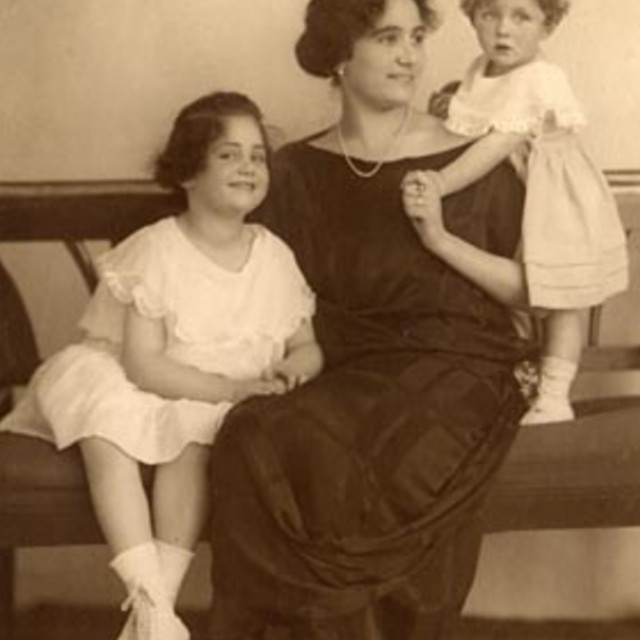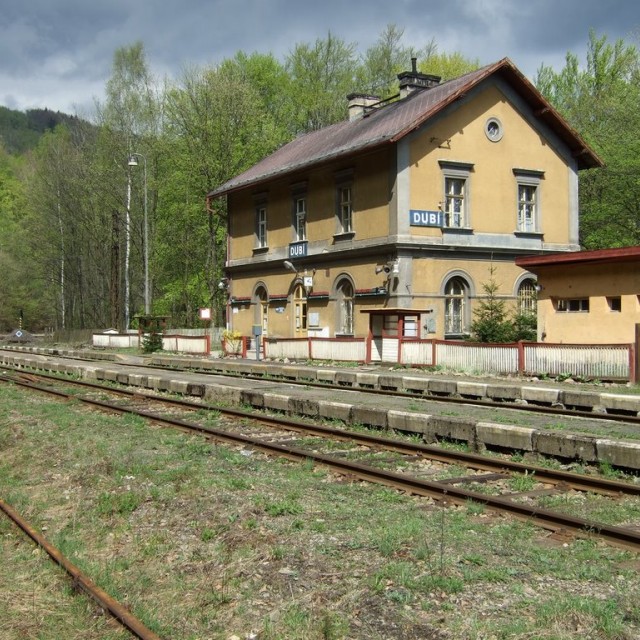Who would have hid us in such a state
In April 1945 Marieta Šmolková and her sister Hana boarded a transport to the concentration camp in Oederan. They had no idea where they were headed, nor how close they would soon be to their home in Dubí. “They loaded us into cattle wagons, we each got a soup bowl and a slice of bread. There were two hundred of us standing in the wagon and we took turns in sitting. We gave up some of the bowls so that we would at least have somewhere to pee.” The female prisoners began their endless journey stopping and starting from station to station, with the train waiting several hours in one place before lurching onward again. In one such pause, Marieta and her sister recognised the train station they had stopped at as that of their native Dubí near Teplice. “We considered trying to escape, seeing as we knew the place. But we were bald as they had shaved off all our hair in Auschwitz. We had Auschwitz clothes with a stripe on our backs showing that we were prisoners. The station is two kilometres away from the village, so we decided to stay put in the end. Who would’ve hid us in such a state.” It was a hard decision for the sisters. In the end, they were unloaded from the train in Litoměřice. From there they went by foot to (the concentration camp in) Terezín.
Hodnocení
Abyste mohli hodnotit musíte se přihlásit!
Trasy
Příběh není součastí žádné trasy.
Komentáře

Marieta Šmolková (née Blochová)
Marieta Šmolková (née Blochová) was born in 1921 in Dubí near Teplice. Her father owned a porcelain factory in Dubí. The Blochs were a Jewish family and for this reason they had to leave Dubí after the occupation of the borderlands by the Germans in 1938. Marieta then lived in Brno until the constitution of the protectorate. In Brno, they were getting ready for an escape abroad but they missed their chance and for the next two years they lived in Prague, where they were already obliged to respect the Nuremberg laws. In December 1941, Marieta, her sister, mother and her mother's second husband were deported to Theresienstadt. In autumn 1944, they were sent to Auschwitz, where her mother's husband was immediately shot. Marieta and her sister were transferred after a week to work in the German town of Oederan. Their mother died in Auschwitz of dysentery. In April 1945, Marieta and her sister were moved back to Theresienstadt. The transport took eight days. In Theresienstadt they reunited with their father and remained there until the end of the war. After the war, the Blochs were branded as Germans and were deprived of their Czechoslovak citizenship. They only regained it after three years. Marieta got a job in the field of foreign trade and married Jaroslav Šmolka, who was also a survivor of the Holocaust. They never joined the Communist Party. Mrs. Marieta Šmolková still lives in the Jewish quarter in Prague.



